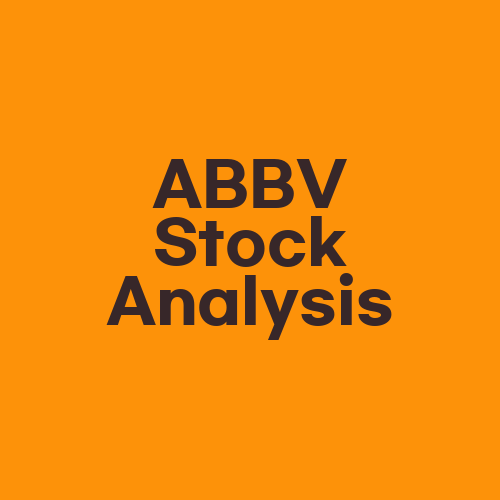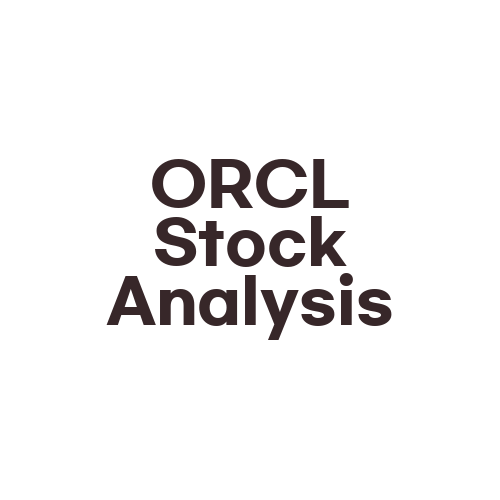ABBV Stock Analysis

ABBV Stock Analysis: Comprehensive Guide for Investors
- Introduction
- What is ABBV?
- ABBV Stock Overview
- Financial Performance
- SWOT Analysis
- Investment Opportunities
- Risks & Challenges
- FAQs
AbbVie Inc. (ABBV) is a global pharmaceutical company that discovers, develops, and delivers advanced therapies to address a wide range of health issues. With a market capitalization of $180 billion, ABBV operates in over 175 countries, serving millions of patients worldwide.
Introduction
If you’re looking for a reliable investment opportunity in the pharmaceutical industry, ABBV is a great stock choice. In this article, we’ll provide you with a comprehensive analysis of ABBV, including its corporate overview, stock performance, financial analysis, SWOT analysis, and investment opportunities. You’ll also learn about the risks and challenges of investing in ABBV, as well as answers to some frequently asked questions about the company.
What is ABBV?
ABBV is a pharmaceutical company that operates in more than 175 countries worldwide. The company was founded in 2013 as a spin-off from Abbott Laboratories. ABBV’s mission is to research and develop cutting-edge therapies that address some of the world’s most severe health challenges. For example, ABBV is a leader in the development of treatments for cancer, immunology, neurology, and virology.
ABBV Stock Overview
ABBV is listed on the New York Stock Exchange under the ticker symbol ABBV. As of September 2021, ABBV has a market capitalization of $180 billion, making it one of the largest pharmaceutical companies globally. The stock price of ABBV has been relatively stable, fluctuating between $75 and $118 per share over the past five years. Investors looking for steady revenue and long-term growth potential may find ABBV a great investment option.
Financial Performance
ABBV’s financial performance has been stable and growing in the past few years. The company’s annual revenue in 2020 was $45.8 billion, up from $33.3 billion in 2016. ABBV’s net income in 2020 was $7.8 billion, up from $5.3 billion in 2016. ABBV’s stock also pays an attractive dividend, currently sitting at 4.71%, making it an excellent option for income-oriented investors.
SWOT Analysis
Here’s a brief SWOT analysis of ABBV:
- Strengths: ABBV has a strong portfolio of drugs, diversified product offerings, and a strong financial position.
- Weaknesses: ABBV relies heavily on its flagship drug, Humira, which accounts for more than half of its revenue. This means the company is vulnerable to the expiry of Humira’s patents, which could lead to a decline in revenue.
- Opportunities: ABBV has several potential growth drivers, including its pipeline of new drugs, acquisition opportunities, and expansion into new markets.
- Threats: Apart from the threat of expiring patents, ABBV faces challenges related to increasing competition, regulatory changes, and a possible economic downturn.
Investment Opportunities
ABBV offers great opportunities for investors looking to gain exposure to the pharmaceutical industry. Here are some of the reasons why you should consider investing in ABBV:
- ABBV has a strong pipeline of new drugs in development, which could drive future growth.
- The company’s financial position is solid, with stable revenue growth and a high dividend yield.
- ABBV operates in several high-growth areas, including oncology, immunology, neuroscience, and virology, which offer long-term potential.
- The stock’s valuation is attractive, trading at a price-to-earnings ratio of 8.8x, which is lower than its peers in the industry.
Risks & Challenges
Investing in ABBV does come with some risks and challenges, familiarize yourself with them before making any investment decisions.
- ABBV is still largely reliant on Humira, which is set to lose patent protection in the coming years. This means that the company will need to diversify its revenue streams by investing in new drugs or making acquisitions.
- The pharmaceutical industry is highly regulated, and any regulatory changes could impact ABBV’s ability to sell its products or disrupt its R&D efforts.
- Rising competition from other pharmaceutical companies could pressure ABBV’s market share and profitability.
- A slowdown in the global economy or an economic recession could negatively impact ABBV’s stock price.
FAQs
Here are some frequently asked questions about ABBV:
- What does ABBV do?
- What is ABBV’s stock symbol and where is it listed?
- Does ABBV pay dividends?
- Is ABBV stock a good investment opportunity?
- What are the major risks and challenges of investing in ABBV?
For answers to these questions and more, visit https://www.abbvie.com/.
Ideas for ABBV in the Text
- ABBV’s global presence and reach
- R&D investments and pipeline
- Competition from other pharmaceutical companies
- Financial performance and dividend yield
- Possible acquisitions and expansion into new markets
- Potential risks related to regulatory changes and economic downturns
What You Should Know About ABBV
What is ABBV’s market capitalization?
ABBV’s market capitalization is currently at $180 billion.
What are ABBV’s major business areas?
ABBV operates in several high-growth areas, including oncology, immunology, neuroscience, and virology.
Does ABBV pay dividends?
Yes, ABBV has a high dividend yield of 4.71%, making it an excellent option for income-oriented investors.





